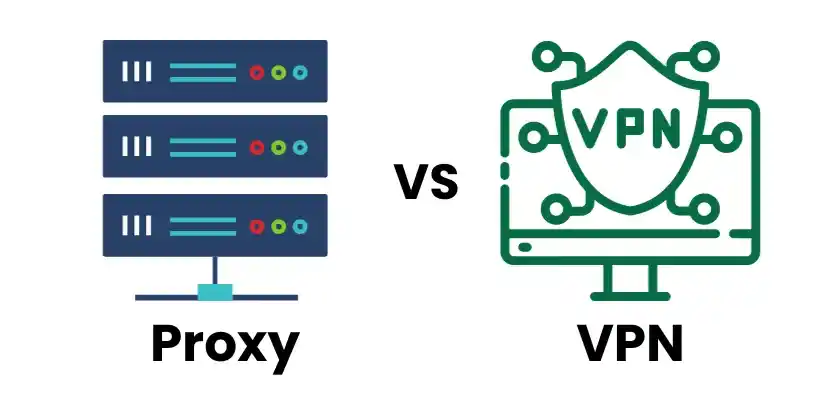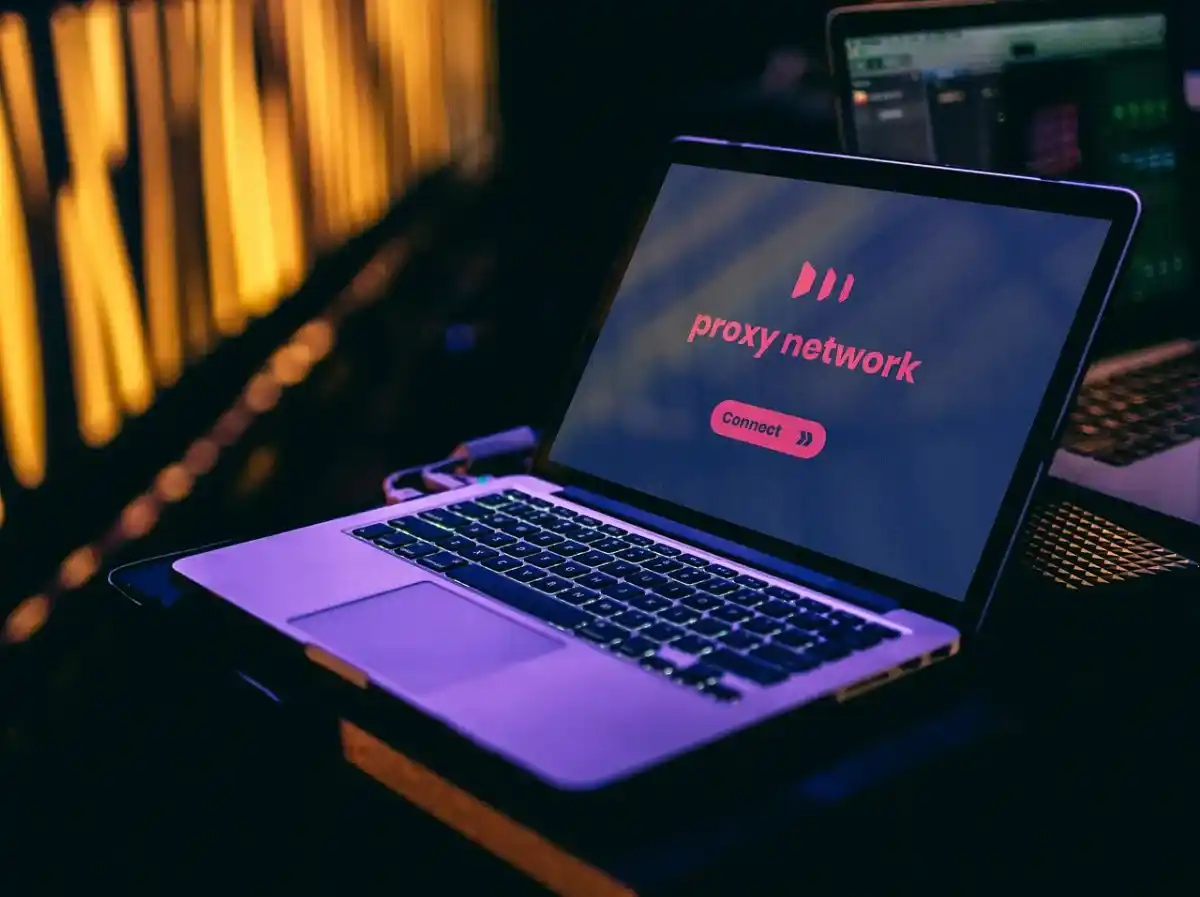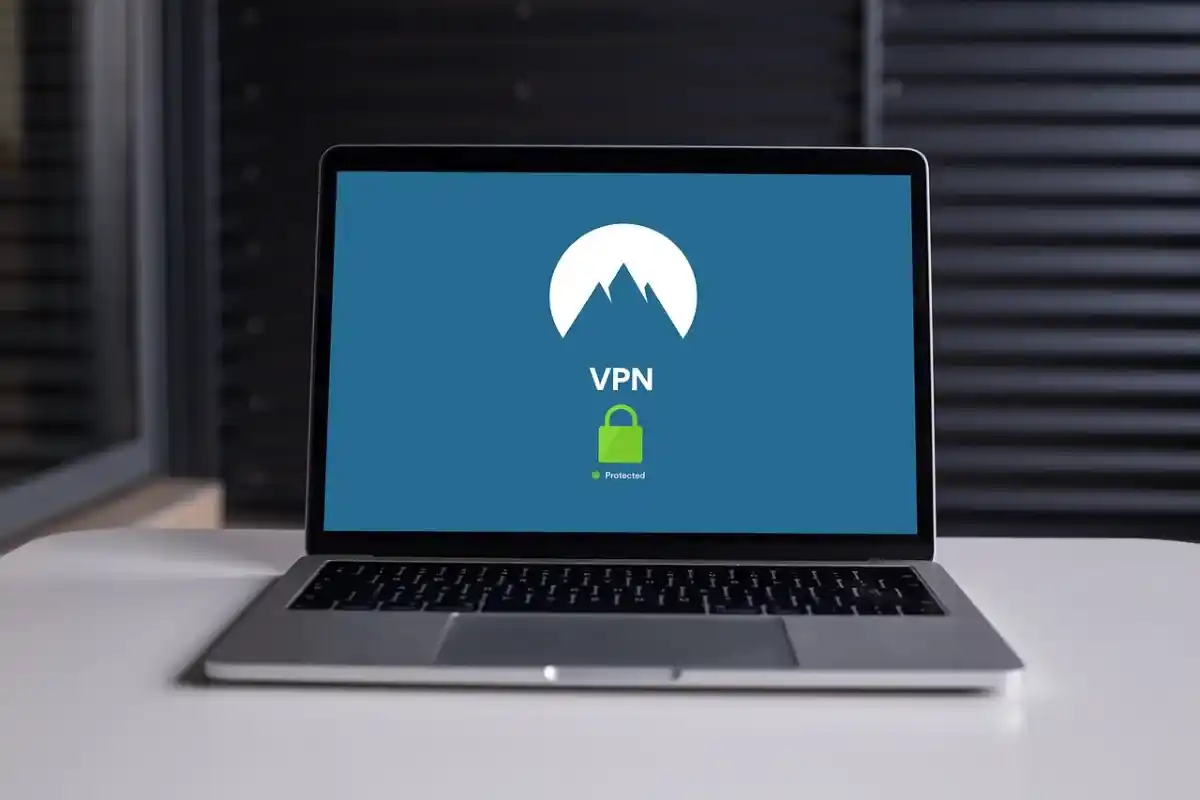You can choose between a proxy server or a VPN when you need to cloak your identity and access blocked content. Both have their pros and cons, but which one is right for you?
In this article, we’ll explore the differences between Proxy vs VPN so you can make an informed decision. Keep in mind that while both are great tools for privacy, neither is 100% foolproof.
Proxy vs VPN : At a Glance
| Feature/Aspect | Proxy | VPN |
|---|---|---|
| Basic Function | Acts as an intermediary between the user and the internet. | Transmits data over the internet while encrypting it. |
| Common Types | Residential and Datacenter proxies. | Not specified in the article. |
| Usage | Web scraping, unblocking geo-restricted content, anonymity. | Privacy, unblocking geo-restricted content, encrypting internet traffic. |
| Integration | Can be trickier to set up, often used by businesses. | Designed for ease of use, typically simple to set up and operate. |
| End User Benefits | Enhances privacy, can encrypt internet requests, unblocks content. | Improves security, allows access to geo-restricted content, encrypts all internet traffic. |
| Purpose | Anonymity, often used for web scraping and data collection. | Designed for individual users, focuses on hiding identity and encrypting data. |
| Ideal for | Brand protection, market research, online scraping. | Users seeking enhanced security and privacy. |
| Operation with Web Scraping | Used in conjunction with web scraping to mimic real user activity. | Not typically used for web scraping. |

Proxy vs VPN: Introduction
What is a proxy?

You can use a proxy to function as an intermediary between you and the internet. Consider a proxy as a web filter that manages your requests on the internet. Your true IP address will be concealed because the website you are visiting will only be able to identify the proxy IP address.
Common type of Proxies
Residential proxy: It is a legitimate IP address that an ISP gave a homeowner. These proxies make it possible to mimic real user activity, which is crucial for web scraping. Residential proxies lessen the likelihood of being blocked by desired websites. Additionally, a residential proxy ensures greater levels of anonymity by masking a genuine IP address.
Datacenter proxy: This kind of proxy is independent of an ISP. They originate from supporting businesses like cloud hosting companies. They are quicker than residential proxies, but there is a greater possibility of getting blocked. Datacenter proxies do, however, also guarantee excellent anonymity.
Shared proxy: These proxies are utilized concurrently by numerous people. Low performance is the shared proxies’ main shortcoming. Shared proxies also carry several potential problems since if one user is blocked, all the other users will be as well.
Semi-dedicated: Similar to shared proxies, this kind of proxy can only be used by a specific number of people. A semi-dedicated proxy provides noticeably higher performance because of this.
Private proxy: An individual uses a private proxy as it is more anonymous. Private proxies offer a high level of overall performance and total user privacy.
What is a VPN?

When users connect to the internet, a Virtual Private Network (VPN) acts as a middleman to transmit data while encrypting it. VPNs are typically used to protect sensitive information and surf the internet secretly.
Internet browsing can be done with greater privacy by using a VPN. Additionally, it makes sure that all internet traffic coming from the user’s device is encrypted and can unblock geo-restricted content.
On a business level, a VPN is only useful for protecting employees’ devices when they are linked to other networks, like public WiFi. A company wouldn’t utilize a VPN as a proxy, though, because it was never intended for web data collection.
Simply put, a VPN will change your original IP address into a new one, increasing your level of anonymity by concealing your true IP address. It will provide access to geo-restricted content, and its encryption of all internet requests coming from the user’s device may be its most distinctive feature when compared to a proxy server.
Proxy vs VPN: Advantages and Differences
Now that you know why, a proxy and a VPN are frequently confused since they provide the same function. Users frequently do not understand the distinction between a proxy and a VPN. Let’s examine the distinctions to avoid posing new queries like, “Is a VPN a proxy?”
Integration
Proxy: Tailored for business use, proxies offer robust functionality with a focus on effectiveness over design. They may require more complex setup processes.
VPN: Designed for individual users, VPNs prioritize ease of use. They are typically straightforward to set up and operate, often requiring just a few clicks for complete functionality.
Benefits for the End User
Proxy: Enhances online privacy and can encrypt internet requests for increased security. Proxies are adept at unblocking geo-restricted content, allowing access to a wider range of information.
VPN: Significantly boosts security measures, encrypting all internet communication and enabling access to geo-blocked content. VPNs ensure that user communication appears to originate from different IP addresses, enhancing anonymity.
Purpose
Proxy: Primarily used for web scraping and data collection, proxies are ideal for businesses engaging in market research, brand protection, and other data-intensive tasks. They help avoid blocks from target data sources.
VPN: Focused on individual users, VPNs are perfect for those seeking to conceal their identity and secure their internet activities. They are not typically used for web scraping but are more geared towards private, secure browsing.
Conclusion
So, what’s the verdict – VPN or proxy?
If you need to access content that’s blocked in your country, a proxy is the best way to go. But if security and privacy are your top priorities, then you should go with a VPN. Ultimately, the decision comes down to what you’re looking for in a service and how much you’re willing to pay for it.
Proxy: Serves as an intermediary for internet requests, primarily used for web scraping, unblocking geo-restricted content, and enhancing user anonymity. It’s often employed in business contexts for tasks like market research and brand protection. Proxies can be more complex to set up and are categorized into residential and datacenter types.
VPN: Acts as a secure channel for internet data transmission, encrypting all traffic for enhanced privacy and security. VPNs are user-friendly, easy to set up, and ideal for individual users seeking to protect their online identity and access geo-restricted content. They are not typically used for web scraping but are more focused on securing and privatizing all online activities.
